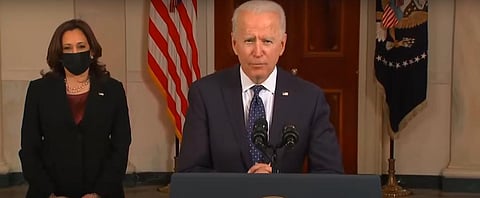

Massive investment on part of the United States government would be needed if it wants 80 per cent of its electricity to be clean by 2030, a policy brief by Clean Energy Futures, a project of Syracuse University in New York has said.
If the United States Congress adopted a package of appropriate financial incentives through the budget reconciliation process, 80 per cent of the country’s electricity by 2030 (80x30) would generated with carbon-free resources.
The United States government led by President Joe Biden, has called for a 100 per cent carbon-free power sector by 2035, with an interim target of 80 per cent clean electricity by 2030.
Huge investment in new clean generation from wind and solar would be needed to reach this target of carbon-free power, the brief said. It would also require incentivising utilities to preserve generation from existing clean energy resources including hydropower and nuclear energy.
Appropriate government investment and incentives had the ability to lower the energy cost burden of ratepayers / taxpayers, by keeping wholesale electricity prices and consumer costs at or below today’s levels.
The structured investments can go a long way in ensuring that all regions of the US receive economic, air quality and health benefits, the brief said.
The estimated benefits of the 80x30 clean energy standard (CES) were large, widespread and far outweighed the costs. The estimated present value of climate benefits worth $637 billion outweighed the estimated policy costs of $342 billion.
An estimated 9,200 lives can be saved in 2030 alone in the US and an estimated 317,500 lives saved from 2020 to 2050 with $1.13 trillion in cumulative health benefits, leading to net benefits of $1.43 trillion, according to the brief.
A CES would require power utilities to achieve annual clean-energy milestones, which would create a financial incentive for clean energy while indirectly lowering the value of other types of generation.